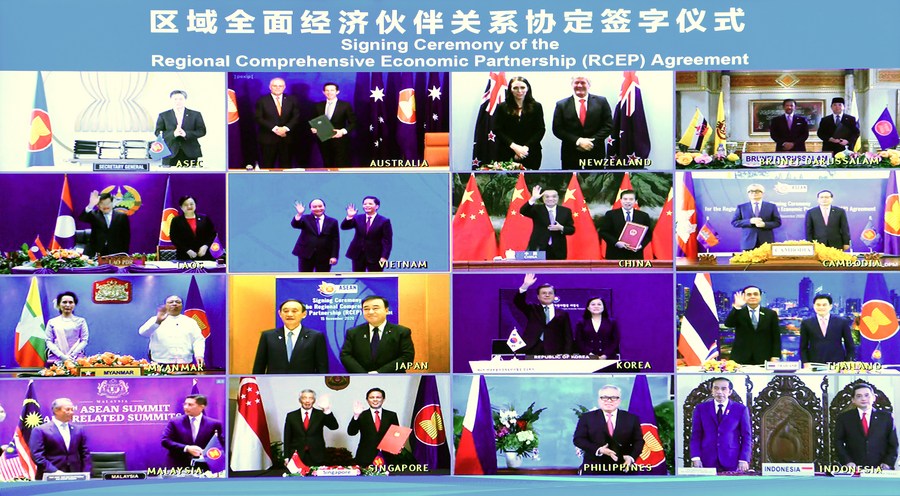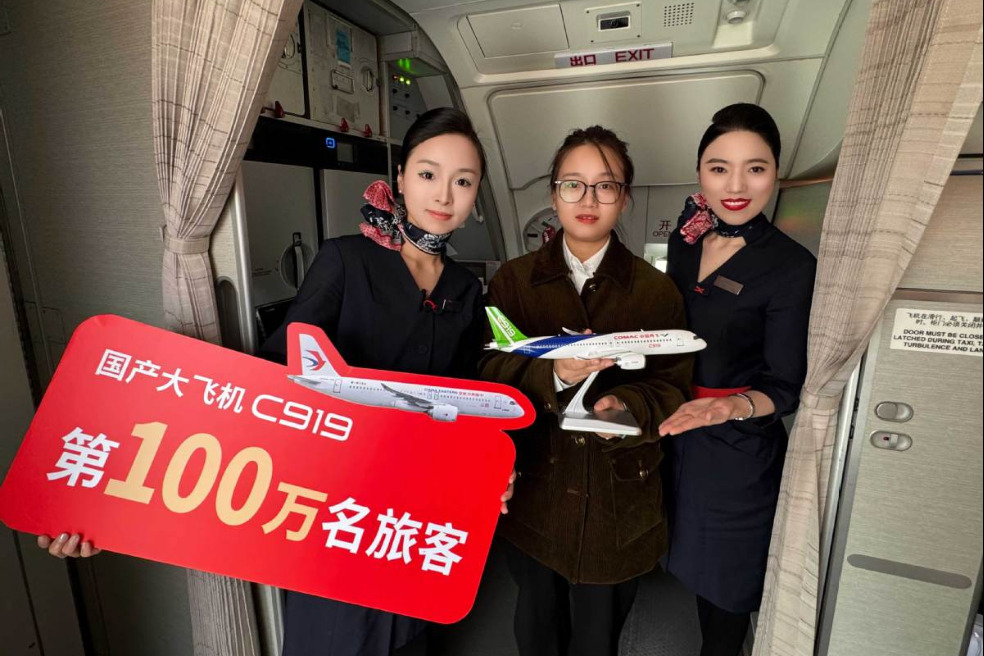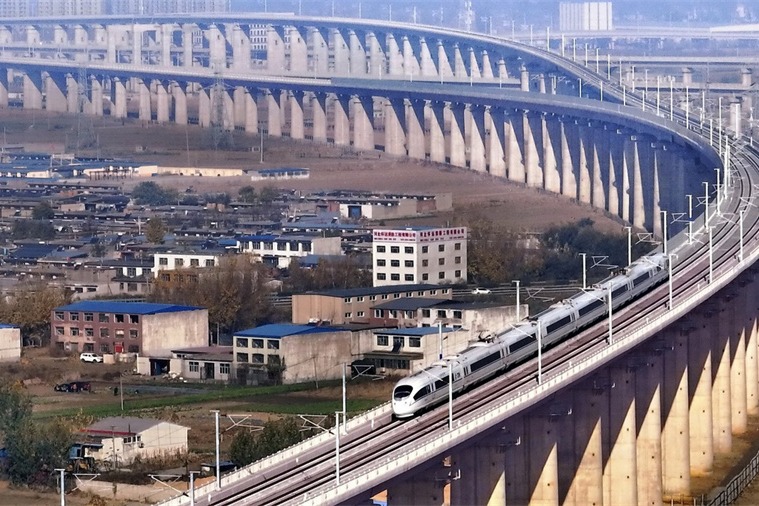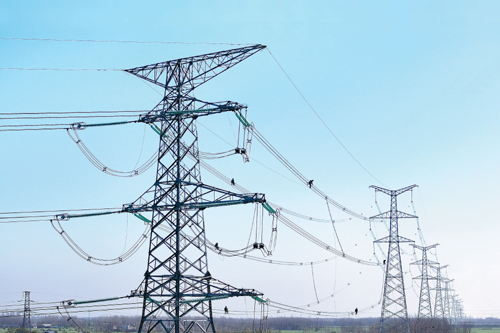RCEP pact expected to elevate role of Asia-Pacific






The landmark Regional Comprehensive Economic Partnership trade agreement signed last year will give the Asia-Pacific region more weight in the global economic landscape and facilitate a higher standard of trade and investment to fuel growth worldwide, according to experts and business leaders on Monday.
As a significant trade deal to defend globalization and boost regional trade and investment, the RCEP is surely a shot in the arm for the multinational trade framework and gives new impetus to globalization, said Long Yongtu, former vice-minister of foreign trade and former secretary-general of the Boao Forum for Asia.
The Asia-Pacific region has gained more weight as an economic powerhouse in recent years, and with the signing of the RCEP free trade deal, the transition seems to be more obvious, Long said at a panel discussion of the Boao Forum for Asia Annual Conference 2021.
"The RCEP agreement creates a forum to actually manage the economic relationship between member countries in the Asia-Pacific region … signaling to the world that this region has to be optimized as an integrated region," said Denis Depoux, global managing director at global consultancy Roland Berger.
He said that the RCEP is creating a framework for further regional integration and a new division of labor between Asian countries, which will facilitate trade and investment for member countries and spur economic growth in the region.
"Lowering tariffs between some of these countries is also creating (growth) opportunities for the region."
Michael Lai, general manager of AstraZeneca China, said the Cumulative Rules of Origin under the RCEP framework will substantially boost China's foreign trade and outbound direct investment activities in partner countries.

The cumulative rules are applied when the production process of goods involves different member countries or regions under the same preferential trade agreement. Multinational pharmaceutical companies, such as AstraZeneca, will also benefit from this deal, Lai said.
"Benefiting from the RCEP, we can make full use of the resources from the same economic region for production. It will be easier for the drugs to obtain the original qualification of the contracting countries, and finally enjoy more preferential tax rates and trade treatment," he added.
The major regional free trade agreements, like the RCEP, will have a real impact in facilitating trade and play a strong role in trade promotion among enterprises in the region, said Jean-Etienne Gourgues, managing director of Pernod Ricard China, the French wine and spirits group.
For enterprises from outside the region, the signing of the RCEP will provide a more open and favorable business environment, as well as result in more transparent policies, Gourgues said.
A unified system of rules in the region will allow firms to pursue further investment and in-depth development in the Chinese market, while also providing more space to introduce high-quality foreign consumer products to many more Chinese consumers, Gourgues added.
It may be a better option to integrate the two significant regional trade agreements in the Asia-Pacific region, implementing high standards of free trade and investment in order to fuel global growth, Long added.
China has signed the RCEP and is preparing to join the Comprehensive and Progressive Agreement for Trans-Pacific Partnership through negotiations, which may help to merge these two mechanisms into the largest trade agreement in the Asia-Pacific region, according to Long.
"That should be our target," Long said at a panel discussion of the Boao Forum for Asia Annual Conference.
Ding Yifan, a senior research fellow at the Institute of World Development at the Development Research Center of the State Council, said China may promote the merger of the RCEP and the CPTPP, since China has given positive consideration to joining the CPTPP and strengthened communications with member countries.
However, it will take time for China to negotiate with member countries to join the CPTPP even if it finally decides to. Thus, it is too early to discuss the merger of the RCEP and CPTPP, he said.
Liu Zhihua contributed to this story.































